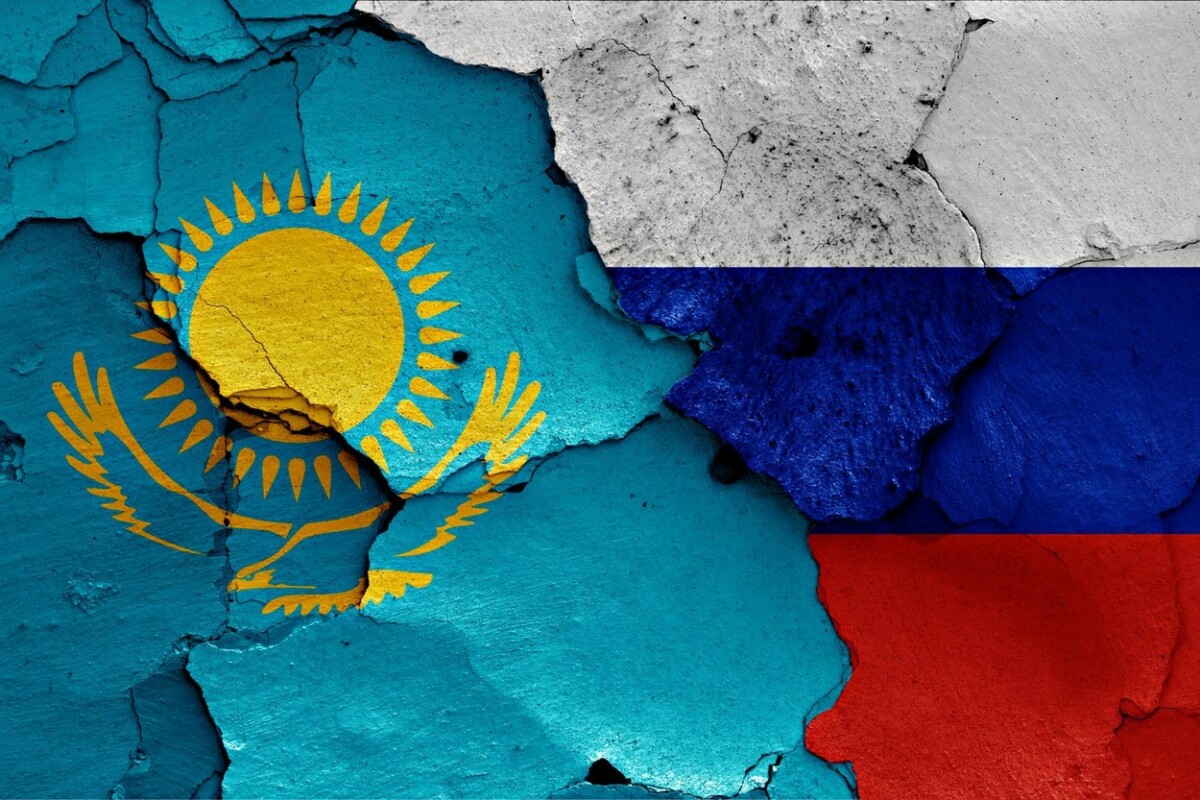Central Asian countries are enjoying an economic boom thanks to Russia

The economic good times in Central Asia are not without their problems, mainly due to accusations that some countries in the region are helping Moscow evade sanctions.
Recent years have been quite difficult for countries around the world. The war in Ukraine, climate change, the lingering impact of the covid pandemic, plus a host of other local and international factors have hit their economies. But such a picture is not the same everywhere. According to the latest report of the European Bank for Reconstruction and Development (EBRD) those in Central Asia saw dangerous growth in the first half of 2023.
Tajikistan tops this list with GDP growth of 7,5% expected this year, followed by Uzbekistan (6,5%), Kazakhstan (5%) and Kyrgyzstan (4,6%).
Many elements are at play, including China's post-pandemic reopening, but Dr Anna Matveva of the Russia Institute at King's College points to a "very obvious reason": Moscow's invasion of Ukraine.
This led "citizens of Russia, Belarus and Ukraine to move their money and businesses to Central Asia" in an attempt to avoid Western sanctions, Matveva told Euronews, adding that they have increased "consumption" and "demand for sophisticated services".

oticon
Russian companies have moved to Kazakhstan and Kyrgyzstan in particular, with their geographic proximity and "cultural familiarity" facilitating the process, she added.
It also points to both countries' membership in the Eurasian Economic Union with Russia, Belarus and Armenia, which facilitates economic integration, with common markets, harmonized regulation and free trade zones.
"People's preferred choice is, of course, to go to Western Europe or the United States. But being in Central Asia has some advantages. One is that people can come and go – they don't necessarily have to make a decision to emigrate permanently."
Exact numbers are hard to come by, but hundreds of thousands of Russians are thought to have left the country, especially since partial military mobilization was announced in September. However, many have returned, unable to find work or secure residency status.

However, there are other parts to the story.
The migration of workers from Central Asia to Russia has also fueled economic growth in these territories as they send money back to their countries of origin, the EBRD said in a September report.
It added that this influx of money "significantly offsets the exodus of the working population" in the region, with millions of Central Asians tending to work in low-paid sectors of the Russian economy, such as construction, agriculture and hospitality.
However, the great economic growth in Central Asia is not without its problems. There are growing accusations among experts that the region is helping Russia avoid sanctions imposed by the West over its invasion of Ukraine.
Speaking to Euronews in August, Tom Keating explained how sanctioned Western products and goods are imported into third countries, such as Kazakhstan and India, and then re-exported to Russia.
"It doesn't make a mockery of sanctions, but it certainly makes it more difficult to ensure that restrictions are properly enforced," he said.
Data collected by Euronews shows that imports of sanctioned Western goods into Kazakhstan have increased massively since the Russian invasion in February.
Between January and October 2022, Kazakh companies shipped over 549 million euros worth of electronics and mobile phones to Russia, 18 times more than the same period in 2021, according to data from the Central Asian Analytical Reporting Bureau.
Such trade is far from new, but can be traced back to routes that emerged during the Cold War era when Russia – then the USSR – was similarly embargoed.

Plus Matveva explains that Moscow has "other ways of working around sanctions", with "many countries around the world involved, including those in Europe".
"Sanctions are generally seen as quite ineffective and quite pointless [in Central Asia]," she says. "That doesn't mean everyone likes what Russia is doing in Ukraine. But the response of the West is not considered adequate."
While the economic impact of the aftermath of the war in Ukraine has been mostly positive for the region, the academic points to "things that Central Asians are not quite happy with."
"Aware of the big picture," she notes, the sanctions have affected Central Asia's ability to export and transport goods, with most routes involving Russian territory.
Kazakhstan in particular is concerned about possible Ukrainian drone strikes on the Black Sea Caspian Pipeline Consortium terminal, which could potentially disrupt oil exports.
"The West in its quest to hurt Russia needs to think about what it means for others who really don't have that many other options. "Western pressure is creating an alienating effect and more anti-Western feelings where there really wasn't any," she concludes.


